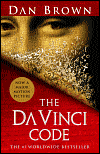http://www.culturemachine.net
Recent figures suggest that research published as "open access" is between two and four times more likely to be read and cited than if it is published in print-on-paper form only.
With this in mind, Culture Machine is seeking contributions to an open access archive for cultural studies and related fields (communication and media studies, visual culture, literary, critical and cultural theory, post-colonial theory, women's studies, new media ...). The archive, called
completely free to both download from and upload into.
You can find
This will let you browse the archive as well as read and download its contents for free. It already contains over 500 books, book chapters, journal issues, articles, interviews and lectures by everyone from Adorno, Agamben, Badiou, Baudrillard, Deleuze and Foucault, through Hebdige, Laclau, Latour, McRobbie and Mouffe, to Nancy, Negri, Poster, Stiegler, Virilio, Virno, Williams and Zizek, to mention just some of the most well known names.
To upload work into the archive go to the "Submit" page. Fill in the brief details and you'll then be sent a login name and password via e-mail together with a direct link. Click on the link and you'll be there--no need to login at that point the first time. (The password just ensures no one but you can edit your entries.) It's really quick and easy.
We realise it's going to take a little time to grow. But one of the ideas behind open access archives of this kind is that if everyone deposits a digital copy of their published material in the archive, then it means all the (in this case) cultural studies research is going to be available for students, teachers, lecturers and researchers to use anywhere in the world, for free, for ever (as opposed to being restricted solely to those individuals and institutions which can afford to pay for access to it in the form of journal subscriptions, book cover prices, interlibrary loans, photocopying charges etc.).
Obviously anything that is already in digital form, be it Word, pdf and so on, can be uploaded easily. If anyone does have early texts in cultural studies and related fields, including out of print books, book chapters, journal editions or articles they can scan in or otherwise make available, that would be great, too.
However, the idea of the archive is not just to preserve documents from the past but to make widely available recent and even current work: both that which is already published and that which is awaiting publication.
More information about
If you have any questions or problems, just send me an email: gary.hall@connectfree.co.uk
Thanks, Gary Hall

